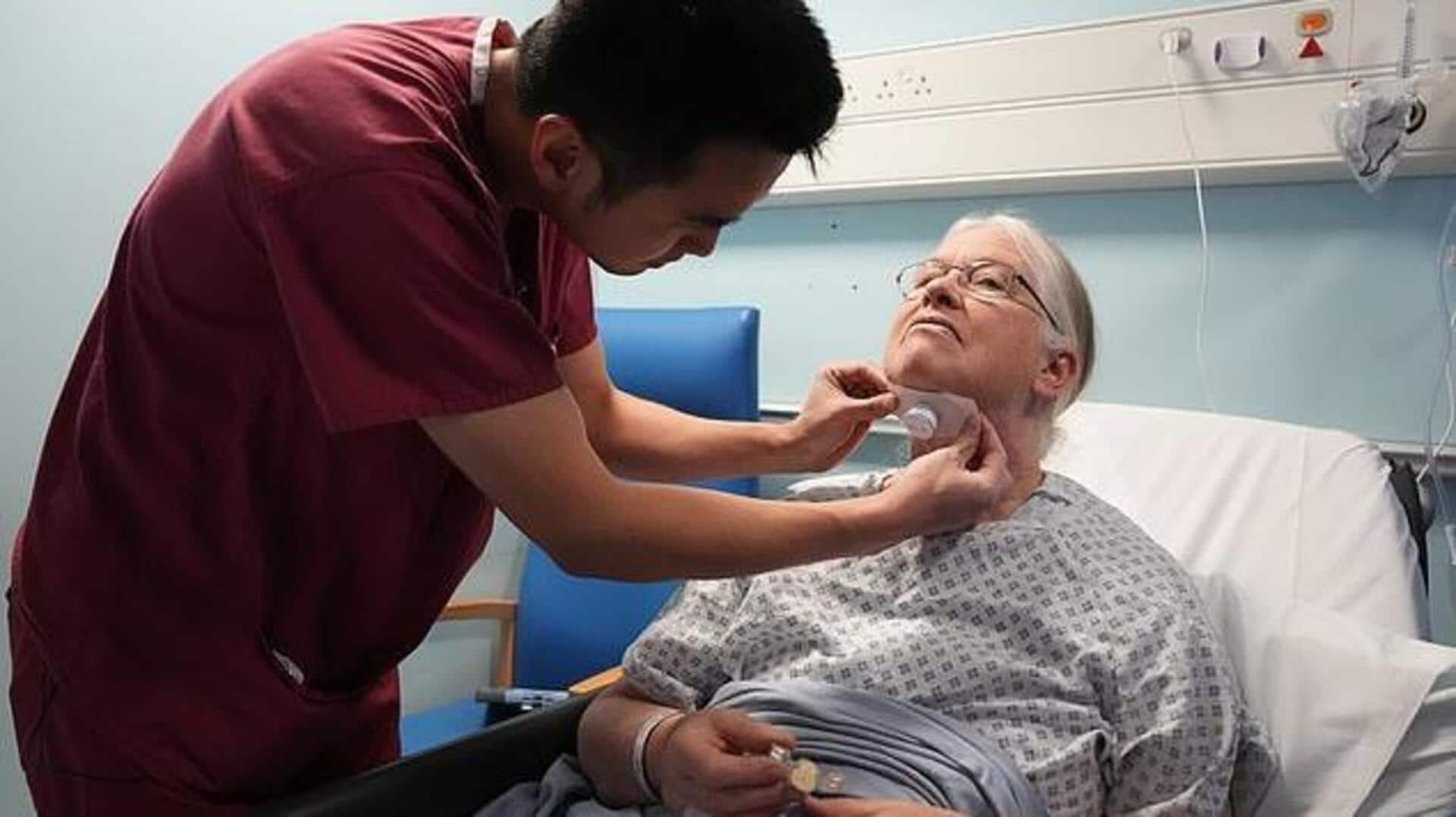
This sci-fi implant could change sleep apnea treatment forever
What's the story
Millions worldwide suffer from sleep apnea, a condition characterized by repeated pauses in breathing during sleep. Traditional treatment often involves using a continuous positive airway pressure (CPAP) machine, which can be uncomfortable for some patients. Now, the UK is trialing a groundbreaking alternative: a tongue-stimulating implant called Genio. This small device, placed under the chin, sends mild electrical pulses to tongue muscles to prevent airway obstruction during sleep. This approach offers hope for some eight million people in the UK.
Surgical milestone
UCLH performs first UK procedure with Genio implant
The University College London Hospitals NHS Foundation Trust (UCLH) performed the first UK procedure to fit Nyxoah's Genio implant. The three-hour surgery was successfully completed on two patients earlier this month. One of the patients, Natalie Boller, said she felt better within days post-surgery and looks forward to increased activity levels once the device is activated. During Boller's operation, surgeons made a 6cm incision below her chin to attach the implant to the nerves that make the tongue move.
Procedure details
Genio implant operation and patient eligibility
The implant is controlled by an external chip, which is stuck to the chin with an adhesive patch while sleeping. This patch can be removed during the day for chip recharging, while patients are able to adjust stimulation levels and monitor sleep through a smartphone app. To be eligible for these implants, one should have moderate to very severe sleep apnea and a body mass index under 35. They should also have tried using a CPAP machine before.
Treatment options
Implant offers alternative to traditional sleep apnea treatment
UCLH now offers sleep apnea patients a choice between Genio and Inspire implants. Both devices stimulate the hypoglossal nerve (which controls tongue muscles) to provide an alternative to CPAP machines. CPAP machines are widely used but can be uncomfortable with the mask they require. The new implants are a major step forward in terms of patient comfort and convenience.
Medical optimism
Surgeons express optimism about new treatment
Consultant ENT and sleep surgeon Ryan Chin Taw Cheong was optimistic about the tech. He said, "I'm very optimistic about the way things are moving, and I'm hoping that we will be able to make this technology and make this implant more available for the right patients."